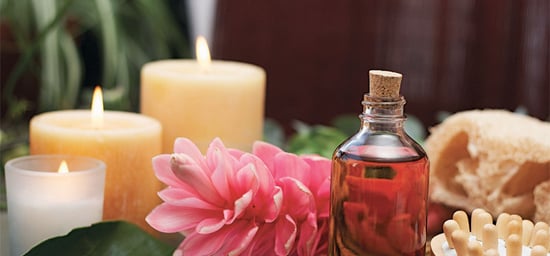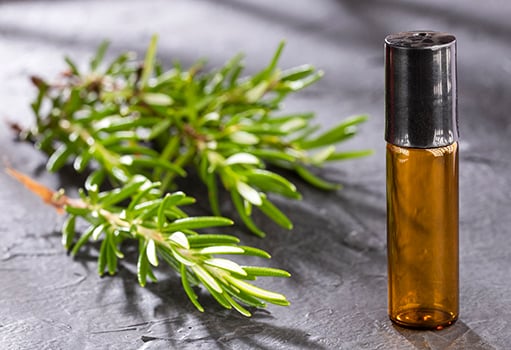5 Natural Home Remedies For Dry Skin This Winter
Winter is a great time for adventures like nature hikes, birdwatching and cozy family time. However, the season also brings cold air, and for some, dry and itchy skin that causes discomfort. Whether you only experience dry skin in winter or it’s a condition you are familiar with all year round, relief is always welcome.
In addition to using preventive measures like taking shorter showers and running humidifiers, you can try several natural remedies to soothe dry skin. Here are some of the most common reasons winter worsens skin conditions and options for keeping your skin healthy.
Causes Of Dry Skin In Winter
Generally, dry skin comes from a skin barrier that has become weak. If you have dry skin, you may also experience symptoms like itching, redness and flaking due to:
- A decrease in natural oils from over-exfoliation and using the wrong products for your skin.
- Reduced humidity from indoor heating.
- Aging, with most people over 40 experiencing dry skin.
- Lifestyle or occupations like nursing, hairdressing and construction.
- Cold weather that brings harsh winds and dry air, which reduces lipids in the skin.
- Hot showers and baths.
- Rubbing your skin vigorously with a towel after a bath or shower.
Natural Remedies And Recipes
MILK. Famous historical figures, such as Cleopatra and Queen Elizabeth I incorporated milk into their bathing routines, and for good reason. Milk contains lactic acid, which is an alpha hydroxy acid used in skin care products to exfoliate the skin gently. Lactic acid promotes cell turnover and improves the skin barrier for smooth and soft skin. It’s also safe if you’re pregnant or have sensitive skin.
If you have inflamed skin, milk can help calm the irritation. Milk baths can also make your skin feel softer, thanks to the fats in the milk that cling to it.
You can either take a milk bath or make a milk compress. For a milk bath, add two cups of milk in a warm — not hot — bath and add rose petals, Epsom salts or skin-safe essential oils. Soak for up to half an hour for smooth, supple skin.
If you have itchy or irritated skin, a milk compress might help to calm it down. Soak a small clean towel in a bowl of cold milk, wring and place on dry areas for about 10 minutes.
PURE OLIVE OIL. Around 42% of dermatology patients seek treatment for aging and conditions linked to oxidative stress, for which olive oil can be an effective remedy. It contains squalene, which supports your skin’s ability to retain moisture and promotes collagen production. It also has vitamin E, which aids barrier repair, and antioxidants that can help reduce signs of aging from oxidative stress.
As a moisturizer, you can apply a small amount on affected areas and wipe off any residue to protect your pores from clogging. Olive oil also works well as a makeup remover, thanks to its ability to dissolve oily residue on your skin. If you struggle to remove your waterproof makeup, olive oil is a natural option that effectively removes it while adding some moisture.
If you have sensitive skin, using olive oil can affect your skin barrier and clog pores, so it’s best used briefly. As with any skin product, try a patch test first before committing.
MANUKA HONEY. Manuka honey, which is native to both Australia and New Zealand, comes from bees that pollinate manuka bush blooms. It contains anti-inflammatory, antioxidant and antiviral properties that can treat skin conditions by providing a protective barrier.
Regular honey offers many of the same benefits but contains less methylglyoxal. Methylglyoxal has antibacterial properties, which can help to soothe irritation and inflammation. You can apply manuka honey to dry skin for a few minutes as a mask or add other soothing ingredients like aloe vera and oats.
OATMEAL. In a clinical, cosmetic and investigational dermatology study, researchers observed that participants who used colloidal oatmeal for eczema on their hands experienced less intense symptoms. Colloidal oatmeal has soothing and anti-inflammatory properties, which are beneficial for dry skin conditions. It also offers protective properties, and rehydrates your skin to prevent future dryness.
You can make an oat mask with honey and apply it to your skin for a few minutes, then rinse. You can also enjoy an oat bath by putting a cup of colloidal oats in stockings/pantyhose and tying it to the faucet. As the water runs through the oats, it will fill your bathtub with a skin-soothing remedy.
TEA. Tea can be an effective natural remedy for dry skin when you use it as a compress. A Journal of Dermatology treatment study shows that black tea dressings can treat facial dermatitis when applied with emollient cream. It works so well because tea contains anti-inflammatory properties and can reduce irritation and inflammation. In other words, tea can soothe itching, dryness and flaky skin.
Soak a few chamomile, black or green tea bags in hot water for a dry skin treatment. Let the tea steep and cool. Dip a towel in the tea and apply to dry skin areas for a few minutes. Rinse with lukewarm water and apply an emollient moisturizer.
Other Ways To Protect Your Skin
In addition to these natural dry skin remedies, here are other ways to prevent and treat dryness:
- Limit daily showers to 10 minutes in lukewarm water. Showering or bathing in hot water can strip your skin of its natural oils. During winter, the skin reduces natural oil production, so you should protect it with shorter baths and cooler water.
- Protect your skin by wearing a cotton base layer before wool or other winter fabrics. Cotton is breathable and soft and protects your skin from potential irritants.
- Use a humidifier to protect your skin from dry, low-humidity environments.
- Only exfoliate about twice a week to avoid irritating your skin and stripping much-needed oils and moisture.
These natural remedies will help you treat dry skin in winter and provide some relief. Taking care of dry skin also requires preventive measures. Take shorter showers wear, cotton, and ensure your skin is well moisturized. Hopefully, these tips will keep you comfortable in your skin all year long.
Mia Barnes is a freelance writer and researcher with a passion for holistic healing and healthy living. She is also the Founder and Editor-in-Chief of the online publication Body+Mind magazine.











